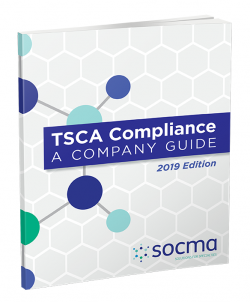The Contract Manufacturing Outlook Report brings a more forward-looking perspective, including critical information for budgeting and strategic planning for next year. This report compiles industry data specific to the specialty and fine chemicals and contract and toll manufacturing sectors to provide insight into the buyer/toller relationship.
The Department of Defense (DOD) has utilized the Defense Production Act Investments (DPAI) Program to establish domestic manufacturing capabilities for critical chemicals. Call 013 is projected to be released by October 2025. Utilizing details from Call 012, SOCMA has compiled a preliminary guide to walk members through the initial steps of becoming a government contractor and evaluate future funding opportunities.
Finding a new tolling and manufacturing partner is easy through SOCMA’s commercials services.
Search the online SOCMA member manufacturing capabilities guide or submit a project specific request.
The Catalyst for Chemical Conversations. SOCMA President & CEO Jennifer Abril connects with industry colleagues to discuss market trends and the impact on specialty & batch chemical manufacturers. From AI to sustainability, the SOCMA Podcast is a must listen (or watch) to stay in the know.
SOCMA has compiled information and developed sustainability resources to assist SOCMA members with developing a sustainability framework. SOCMA holds an annual sustainability workshop in April of each year.
SOCMA’s ChemOps Training serves as a great resource for guidance of systems, practices and processes. If your facility is required to be certified under Process Safety Management (PSM), the COT assists you with OSHA compliance.
The ChemStewards White Paper provides an in-depth look at SOCMA’s flagship environmental, health, safety and security (EHS&S) program and includes information about how the program will assist your company in achieving superior EHS&S excellence.
Prioritizing safety in chemical production and transport is more than a practice, it’s a core principle and commitment in plant operations, product stewardship, business partnerships, and community engagement. SOCMA has made available public resources to promote industry safety.
This guide provides essential tips and resources for disaster recovery, tailored for both individuals and the chemical industry. It outlines steps to ensure safety, minimize losses, and facilitate a smoother recovery process.
The purpose of this guide is to educate and raise awareness about fire safety, ensure preparedness and empower individuals to prevent and respond to fires effectively.
CFATS is the nation’s first regulatory program focused specifically on security at high-risk chemical facilities. Managed by the Cybersecurity and Infrastructure Security Agency (CISA), the CFATS program identifies and regulates high-risk facilities to ensure security measures are in place to reduce the risk that certain dangerous chemicals are weaponized by terrorists.
The Hazard Communication Standard (HCS) ensures chemical safety in the workplace by requiring chemical manufacturers to provide information through labels, safety data sheets, and training to employees about hazardous chemicals they may be exposed to. Stay up to date on how the new labelling requirements will impact specialty chemical manufacturers.
SOCMA continues to advocate on legislative and regulatory issues related to strengthening U.S. competitiveness, including restoring the Miscellaneous Tariff Bill (MTB), restoring the Generalized System of Preferences (GSP), and reopening a fair and transparent exemption process for the Section 301 tariffs.
The Risk Management Program (RMP) Rule requires facilities that use extremely hazardous substances to develop a risk management plan. Once developed, these plans must be revised and resubmitted to EPA every five years.

© 2024 Society of Chemical Manufacturers & Affiliates. All Rights Reserved. Privacy Policy | Terms of Use